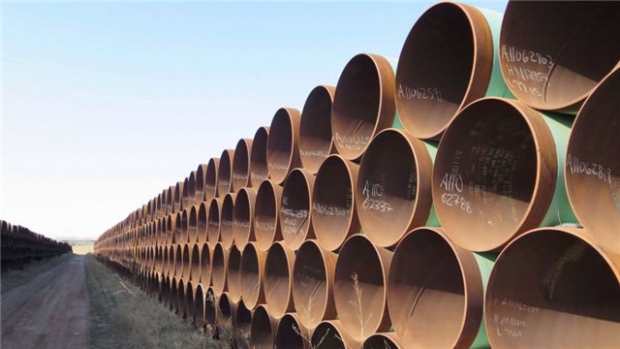Apr 29, 2016
Why pipeline supporters should welcome Trudeau silence on Energy East

Russ Girling may want to thank Justin Trudeau for not openly supporting the proposed Energy East pipeline.
The National Energy Board released a preliminary timeline this week for its imminent review of the $15-billion plan for TransCanada – the Calgary-based pipeline builder Girling runs as CEO – to ship more than one million barrels of Alberta oil sands bitumen. Consultations with communities along the 4,600km route start in August, with a formal recommendation on whether or not to proceed expected 19 months later by March 2018.
Prime Minister Trudeau has been under mounting pressure to throw his political weight behind the proposal as beleaguered oil sands producers struggle to reach higher-priced foreign markets. His predecessor, former Conservative leader Stephen Harper, was an extremely vocal pipeline backer, but the former head of the NEB believes Trudeau’s relative silence is a smarter strategy.
“If the Liberal government did take a position on projects while they are under consideration, they would be saying ‘well, the NEB process is there but we don’t really need to hear from them because we have already made up our minds,’” Gaétan Caron, chairman and CEO of the NEB from 2007 until 2014 and currently an executive fellow with the University of Calgary’s School of Public Policy, told BNN in a recent interview.
“If they feel like making decisions before the NEB process is over they are saying we should just repeal the NEB Act since it is not necessary,” Caron said.
Public interest in what has long been a largely ignored process grew exponentially under Caron’s tenure. More than 1,000 interveners are expected to participate in the upcoming Energy East hearings, compared to roughly 400 participants in the nearly-complete review of Kinder Morgan’s proposal to nearly triple capacity of its Trans Mountain pipeline. In 2008, the last time Kinder Morgan sought NEB approval to expand the Edmonton-to-Vancouver oil conduit, only eight interveners participated.
Ardent political support for controversial proposals such as Enbridge’s Northern Gateway pipeline was intended to help shepherd them through the regulatory process, Caron said, but ended up causing many Canadians to lose faith in the objectivity of the process.
“And with good reason,” he said.
“What has changed is not the regulatory process itself, it is the political environment for the hearings and the political process that follows the NEB process,” Caron explained. “The regulatory hearings for certain facilities, over the past three years or so in particular, have been a place where people with concerns about climate change have converged to express their views.”
Since taking office last November, the new federal government has expanded the NEB mandate to include any impact new pipelines may or may not have on greenhouse gas emissions and, more recently, raised the possibility of appointing Aboriginal representatives as temporary NEB board members; a step Caron sees as critical toward reestablishing the regulator’s legitimacy in the eyes of Canadians.
Trudeau continued to resist calls to get behind Energy East specifically while visiting a First Nations high school in Saskatoon on Wednesday.
“I have been crystal clear for years now on pipelines,” Trudeau said. “One of the fundamental responsibilities of any Canadian prime minister – and this goes back centuries, from grain on railroads to fish and fur – is to get Canadian resources to international markets.”
While some might prefer the PM get more specific in his support for one proposal or another, pipeline pushers stand a far better chance of winning approval deemed legitimate by a pipeline-wary public if Trudeau stays quiet and lets the review run its course.





